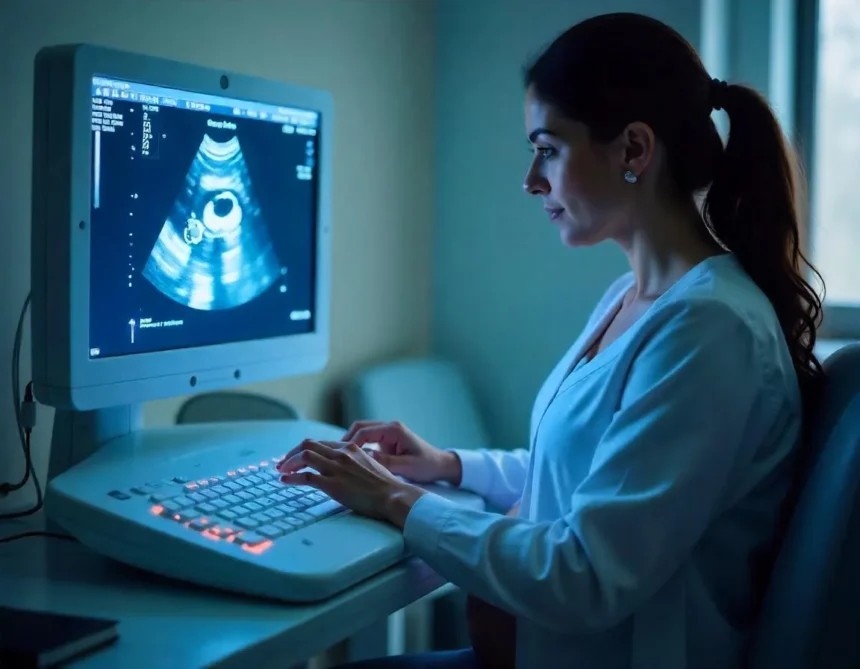Autism is a disorder that affects millions of children and adults worldwide. The signs of autism, which could be witnessed even during pregnancy, have been an immense topic of research and curiosity. With the advancement of medical science, researchers continue to find some fascinating insights on how early brain development inside the womb could relate to the emergence of autism.
If you are pregnant or trying for a baby, you may wonder whether it is possible to diagnose autism in pregnancy. This article covers the early pregnancy symptoms of autism, how the brain forms at this point, and even tips on how to prepare for your child’s support from as early as now. Let’s take a look at all the details you will need to know, based on the most recent studies and expert opinion.

Understanding Autism Spectrum Disorder
Before proceeding to the signs of autism during pregnancy, let’s first briefly understand what ASD is. Autism is a developmental disorder characterized by challenges with social skills, repetitive behaviors, speech, and nonverbal communication. It is termed a spectrum disorder because its symptoms vary greatly in severity from one individual to another.
Why Early Detection Matters
Early detection of autism can make much difference in a child’s life by allowing parents to seek early interventions that might improve outcomes and support the development of a child. Understanding the potential signs of autism while pregnant better arms parents on how to be prepared for life’s journey with their child.
Can Autism Be Detected During Pregnancy?
The most common question parents ask is the possibility of in utero diagnosis of autism. While there is no definitive test for diagnosis, which may be conducted during pregnancy, some markers and research findings give important clues.
Key Research Insights
- Brain Development in the Second Trimester: In one groundbreaking study published in the New England Journal of Medicine, changes in brain development related to autism begin as early as the second trimester of pregnancy, when brain cells do not migrate to their appropriate layers, which further causes impaired connectivity between social, language, and cognitive centers.
- Genetic Factors: Genetics also play a major role in autism. It is more possible if there is a family history of autism or any related developmental disorders.
- Environmental Influences: Exposure to environmental factors during pregnancy, such as infections or toxins, may contribute to an increased risk of autism.
Potential Signs of Autism During Pregnancy
Though one cannot diagnose a child with autism when the woman is pregnant, there are various signs that indicate its possibility. These potential indicators include the following:
1. Abnormal Fetal Movements
Evidence reports that unusual or lesser fetal movement throughout the second and third trimester is related to problems in neurological development. Thus, if some sort of unusual pattern develops, it needs to be communicated to your healthcare provider immediately.
2. Increased Maternal Stress
High levels of stress during pregnancy have been associated with altered development of the brain in the fetus. Chronic stress may affect changing brain connectivity that could have links to autism.
3. Advanced Paternal Age
Children born to older fathers are reported to be at an increased risk for autism. It is believed to relate to genetic mutations accrued over time.
4. Maternal Infections
Pregnancy infections, such as rubella and cytomegalovirus, further elevate the chances a child will develop neurodevelopmental disorders like autism. Such risks can be reduced through proper prenatal care and vaccination.
5. Exposure to Toxins
Exposure to environmental toxins, including pesticides or heavy metals, interferes with fetal brain development. It is recommended that pregnant women avoid exposing themselves to harmful chemicals.

What Pregnant Moms Can Do
Although you can’t prevent autism, you can take certain steps to encourage healthy fetal brain development and minimize risk factors.
1. Prioritize Prenatal Care
See your healthcare provider regularly. Early and ongoing care can help identify your baby’s development and any potential problems early.
2. Maintain a Healthy Diet
A diet high in omega-3 fatty acids, folic acid, and other essential nutrients supports brain development. Avoid processed foods and focus on whole, nutrient-dense options.
3. Manage Stress
Mediation, yoga, and deep breathing can help minimize the level of stress. Reducing stress benefits not only the mother but also the growing baby.
4. Avoid Harmful Substances
Avoid alcohol intake, cigarette smoking, or using recreational drugs. These might hamper fetal development and invite complications.
5. Stay Informed
Educate yourself on autism and early childhood development. Being knowledgeable gives you the ability to make more informed decisions about your child’s health and well-being.
The Role of Genetics in Autism
Genetics play a huge role in autism. Researchers have pinpointed several genes that are responsible for the condition. While autism is not inherited in all cases, your family medical history can help a lot. Genetic counseling is a good option if there is a history of autism in your family.
Genetic Testing During Pregnancy
Advanced testing methodologies including amniocentesis and chorionic villus sampling can detect the same. These tests diagnose chromosomal conditions that may make one susceptible to autism, thus not being actually diagnostic of autism.
The Science Behind Brain Development
The human brain develops rapidly in utero, particularly during the second trimester. At this stage:
- neurons are born and migrate to their appropriate site in the brain.
- synaptic connections between regions are formed to allow communication between them.
- both are heavily influenced by environmental and genetic factors.
and disruptions in any of these stages may affect brain connectivity, leading to conditions such as autism.
Signs of Autism in Early Childhood
Though this article focuses on pregnancy signs of autism, it’s essential to understand the early signs in a child, including:
- Poor eye contact
- Delays in the speech development stage
- Repetition of actions
- Difficulty interacting with others
The effects of these features can be considerably reduced through speech therapy and other behavioral interventions in early childhood.
Conclusion: Hope for the Future
Understanding the signs of autism while pregnant is a rapidly changing field. There is no surefire way to diagnose it in a baby prenatally, but continuous research does offer some promise for earlier diagnosis and intervention. It is by staying informed, making prenatal care a priority, and advocating for continued research that parents can ensure their children get the best possible start.
Remember, every child—autistic or not—has unique strengths and potential. Embrace the journey of parenthood with love, patience, and resilience.

